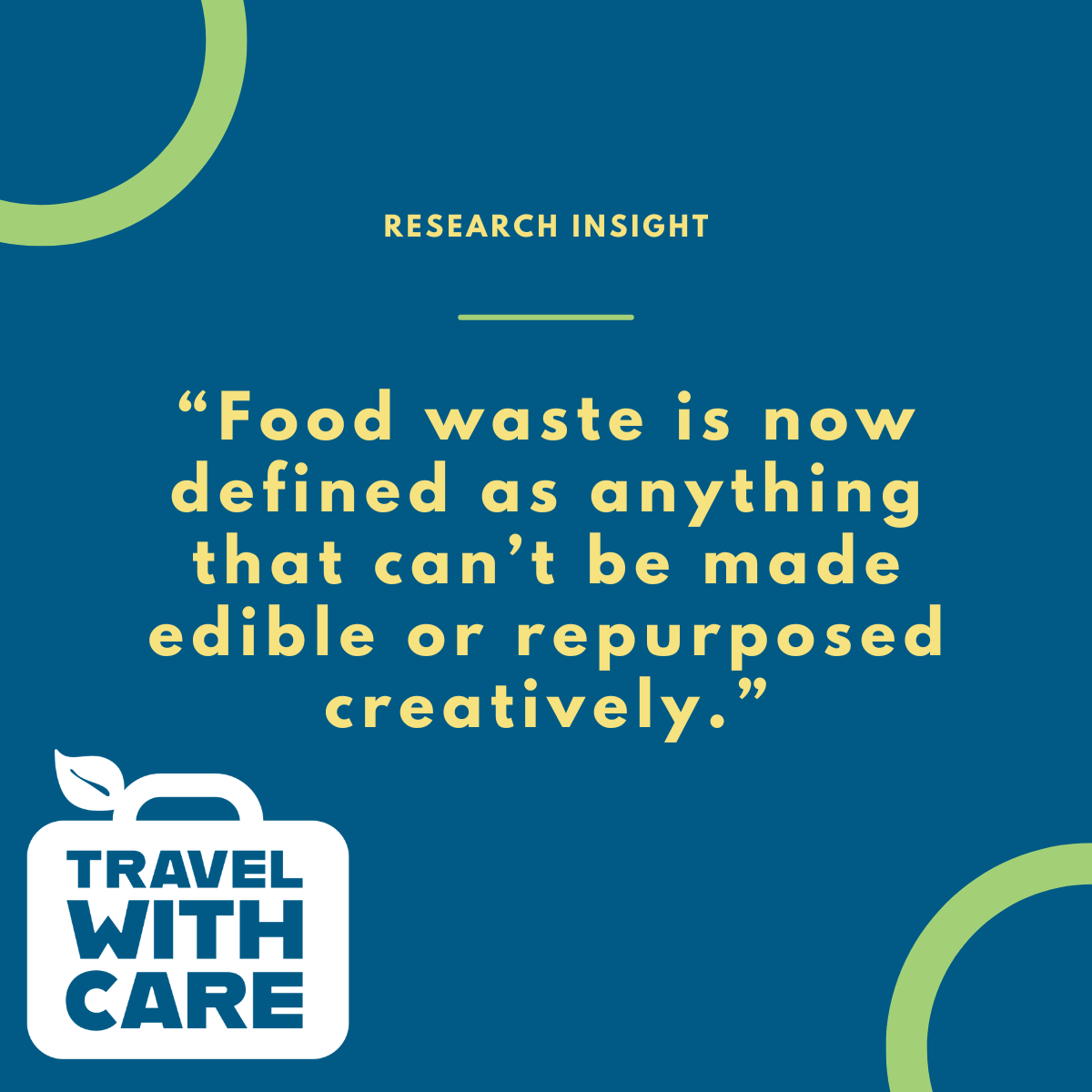
16 Jul Turning Scraps into Stories
Imagine travelers raving about dishes made from ingredients once destined for the bin with each bite a story of sustainability and local flavor. By promoting “creative cooking” and food waste partnerships, DMOs can help turn waste into a culinary asset and give their destinations a fresh, responsible appeal.
According to Pearson (2024), sustainability-led businesses use storytelling, centered on food as a resource, returning to roots, and rethinking waste, to engage customers. DMOs can support this by incentivizing restaurants to craft innovative dishes from surplus ingredients and spotlighting these efforts in tourism campaigns.
Offering recognition like badges or financial rewards can encourage chefs to experiment and shift perceptions of what’s edible. Facilitating partnerships with local producers to use surplus goods can reduce upstream waste and strengthen local economies.
Pearson (2024) emphasizes that food waste is now defined as anything that can’t be made edible or repurposed creatively. By helping restaurants adopt this mindset, DMOs can promote sustainability while offering travelers a more meaningful and memorable experience.
The study can be found here.
Pearson, N. (2024). Rethinking food waste: lessons from best practice. Journal of Sustainable Tourism, 1–22. https://doi.org/10.1080/09669582.2024.2427015

